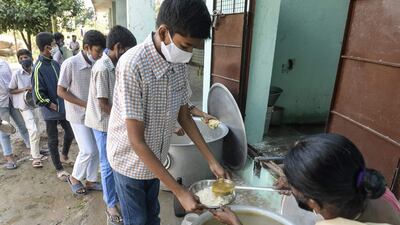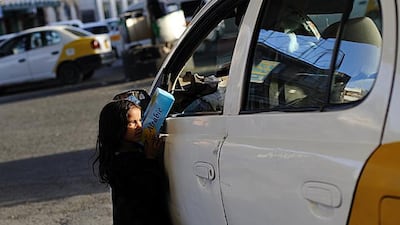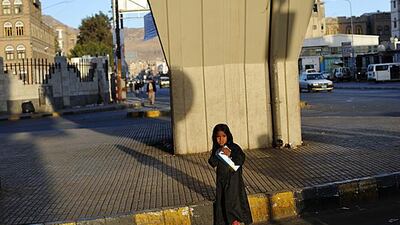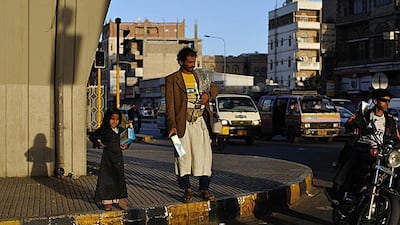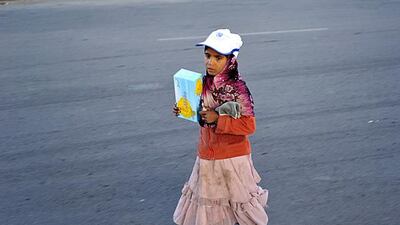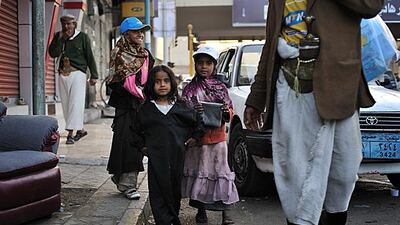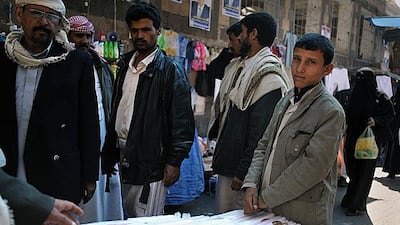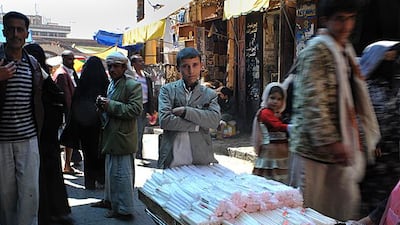Urgent action is required to help hundreds of millions of children without access to school meals since the start of the coronavirus pandemic, said a senior official from the World Food Programme (WFP).
Carmen Burbano de Lara, director of the WFP’s school feeding division, painted a stark picture at the Rewired Education Summit at Expo Dubai 2020 earlier this week.
She said half of the 370 million who lost access to school meals in 2020, after schools around the world closed due to Covid-19, were still going without.
The issue is a global one and the Middle East is one of the worst affected areas, particularly in Yemen, she said.
Vital mission to deliver support
“There was a global collapse of the programmes to support children to get school meals last year and half of the children affected are still going without meals,” said Ms de Lara.
“The biggest challenge we are facing right now is supporting governments to restore access to these programmes.
“There is still a significant amount of countries that have not reactivated their education systems in several regions across the world.”
Millions of children go to school on empty stomachs because the programmes are no longer in place to provide them with meals.
The need for school meals became a hot topic in the UK, when Manchester United footballer Marcus Rashford pressed the government to ensure disadvantaged children received meals to replace free school meals at the height of the pandemic.
The WFP estimates there are also countless millions, particularly girls, who do not go to school at all any more because they are needed to help out in the fields or with domestic duties.
It was also estimated that 73 million primary school aged children, living mostly in Africa, are in need of school meals.
“We’re also trying to figure out how to get meals to children at home,” said Ms de Lara.
“Our biggest agenda at the moment is restoring the levels we had before the pandemic.”
Covid-19 had not only created an education crisis, she said, it was also responsible for a hunger crisis among schoolchildren.
School meals key to child development
She said one unexpected effect of the crisis was that it put the need for school feeding programmes firmly in the spotlight.
“Because the programmes collapsed almost overnight it created a heightened awareness of how crucial school meals are for children,” she said, pointing out that for many school is their only source of a nutritious meal.
“Before the pandemic, school meals was the largest social assistance programme in the world for children.”
The crisis is affecting countries everywhere and the Middle East is not immune, said Ms de Lara.
“The country that comes to mind immediately in this region is Yemen,” she said.
“We have a very large operation with our partners in Yemen. Syria and Afghanistan are the other two countries here where there is a super urgent need.”
She said there have been 61 countries that have pledged their support to the campaign since the beginning of the year, but more needs to be done.
“It’s not just a case of building back to where we were, it’s about building back better to reach the children who were still missing out before the pandemic as well,” said Ms de Lara.
School meals play a vital role in a child’s life and can affect their performance in lessons, said an education expert from Finland, where free meals are available to each child.
“It’s a vital tool in allowing children to educate themselves about the importance of feeding yourself to have a healthy lifestyle,” said Jouni Kangasniemi, programme director for Education Finland, who was also speaking at Expo 2020 Dubai.
“When students are hungry their attention levels tend to fade and less learning happens.
“We see the school lunches as an important part of health education and it also helps social development for students when they eat with their peers.”
